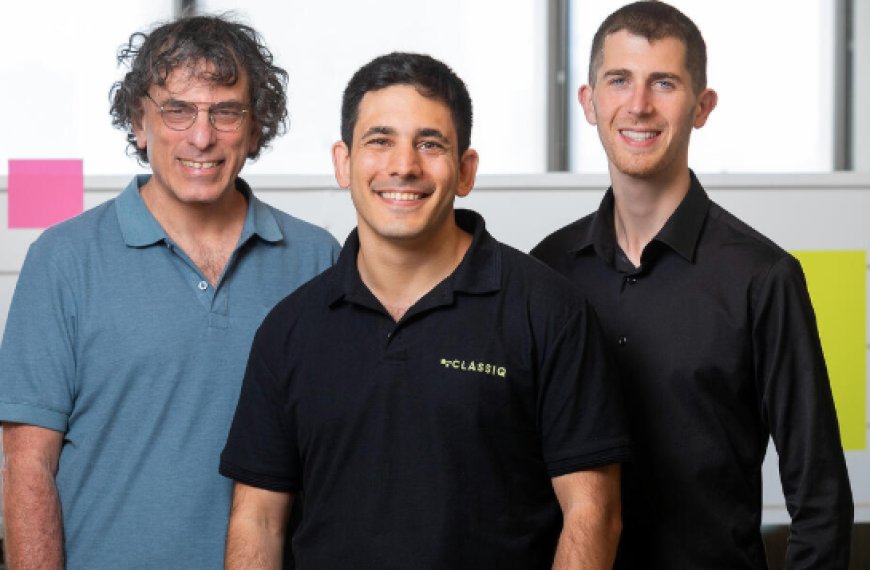Classiq Secures $110M to Lead Quantum Software Revolution
Classiq raises $110M to simplify quantum software development, aiming to make quantum computing accessible to global developers and enterprises.

In a bold move that’s stirring excitement across the global tech community, Classiq, a quantum software startup based in Tel Aviv, has raised $110 million in Series C funding. As reported by TechFundingNews, this latest round positions Classiq as one of the most well-funded players in the race to bring quantum computing into the mainstream. With major backers on board and a clear vision, Classiq is now widely seen as a candidate to become the “Microsoft of quantum computing.”
What Is Classiq?
Founded in 2020, Classiq has built a reputation for transforming how quantum algorithms are developed. According to TechCrunch’s breakdown of the funding, the company offers a high-level platform that allows developers to build quantum circuits without needing deep expertise in quantum physics. In essence, Classiq abstracts away the complexity, letting users define their problems while the platform automatically generates optimized quantum circuits behind the scenes.
This model is akin to how early computing platforms simplified programming—making quantum accessible to a broader set of developers, researchers, and eventually, enterprises.
Who’s Investing and Why?
The $110 million round was led by HSBC, Samsung Next, and NTT Finance, with participation from Hewlett Packard Pathfinder and Phoenix Insurance. Each of these investors sees quantum computing as strategically vital. Forbes' coverage notes that HSBC is interested in the potential for quantum algorithms to revolutionize financial risk modeling, while Samsung is exploring long-term applications in chip design and cryptographic systems.
With NTT Finance and HP Pathfinder joining in, it’s clear that telcos and enterprise tech companies also see Classiq as a key enabler of quantum use cases in the next decade.
Why Quantum, and Why Now?
Quantum computing represents a paradigm shift. Unlike classical computers that use binary bits (0 or 1), quantum computers rely on qubits, which can exist in multiple states simultaneously. This allows for an exponential increase in processing power for certain tasks.
As explained in VentureBeat’s report on the raise, this could transform industries ranging from materials science to cybersecurity. But there’s a catch—quantum software is incredibly complex, and most quantum systems today require low-level, hardware-specific programming. That’s where Classiq steps in, with a platform that simplifies the process and makes quantum development more practical and scalable.
Industry Landscape: Where Classiq Fits
The quantum industry is crowded with big names, but most focus on hardware. Companies like IBM (via its Qiskit platform), Google (with its 2019 claim of quantum supremacy), and Microsoft (through Azure Quantum) are building either quantum machines or cloud access platforms.
Classiq’s uniqueness lies in its software-first approach. Rather than building physical machines, it focuses on the development layer—making quantum applications easier to design, simulate, and test across various hardware backends. This software-centric strategy, as outlined by TechFundingNews, gives it a clear market position among both startups and tech giants.
What’s Next?
With this funding, Classiq plans to accelerate its global expansion, especially into North America, Europe, and Asia. According to Globes’ coverage of the company’s roadmap, the company will increase hiring in R&D, deepen cloud integrations with providers like AWS and Azure, and broaden its partnerships across academia and enterprise.
Long term, Classiq’s goal is to enable “millions of engineers” to build quantum algorithms—just as easily as they build web apps or use machine learning libraries today.
Conclusion
Classiq’s rise reflects a broader truth: quantum computing is no longer theoretical. It’s a commercial and strategic priority for companies, investors, and nations. By lowering the barrier to entry for developers, Classiq is not only accelerating adoption but also reshaping how quantum innovation happens.
The $110 million Series C isn’t just a funding milestone—it’s a turning point for the quantum software ecosystem.



 Utej
Utej 





